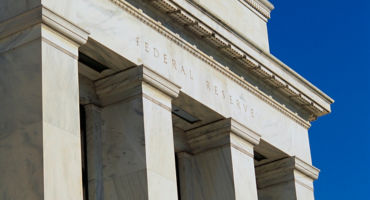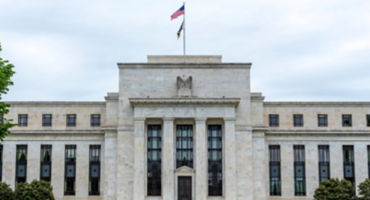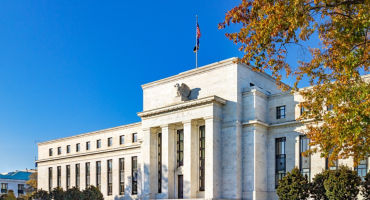Despite the bond market’s obsession with whether the Federal Reserve (Fed) will cut rates by 25 or 50 bps at the September Federal Open Market Committee (FOMC) meeting, what matters more to markets is where the median FOMC participant believes the policy rate will be at the end of 2025. This insight shows up in the so-called “dot plot.”
At alternating FOMC meetings, Fed officials indicate their expectations for the policy rate over the next three years as well as in the long term. This week, the Fed may make significant changes to the dot plot, compared to just a couple of months ago. At the July meeting, the Fed was indicating only a 50% chance of one cut this year and a policy rate ending 2025 at 4.125%. Today, the market is pricing a 100% chance of the Fed cutting at least once more by December 2024.
Why has there been such an abrupt shift in such a short amount of time? The short answer is a calmer view of the inflationary impacts of the labor market.
In my view, the Fed has shifted its focus to the unemployment side of its mandate because it believes that the labor market is in better balance and is no longer a substantial source of inflation. The Fed’s biggest fear after the pandemic was a return to the wage-price spiral that dominated the inflationary 1970s. Fed officials believe this risk has decreased considerably, so they can revert to their pre-pandemic policy of neutral-rate targeting.
Under a neutral-rate framework, the Fed aims to align its policy rate with the economy’s neutral rate, or the level at which monetary policy is neither expansionary nor restrictive. The longer-term dot is the Fed’s hint as to where it believes the neutral rate will be. This is currently at 2.75%.
This likely explains the U-turn in Fed rhetoric. The recent policy rate of 5.325% is well above the median estimate for the neutral rate and so, in the bank’s view, is overly restrictive. One of the reasons equities have been so resilient despite the slowdown in US growth is because the market assumes that the Fed will quickly get policy rates down to neutral. The market is currently pricing a year-end 2025 policy rate of the same 2.75%.
Getting to that level would require a reduction in the 2025 dot’s position by more than 125 bps. While this is not unheard of, it is unusual, particularly for incrementally minded central bankers. If the Fed does not validate this forward market pricing, volatility could rise. Regardless, while the current parlor game is whether we see a 25 or 50 bps cut, keep your eyes on the 2025 dot, as the destination of policy rates matters as much as the path to get there.


























